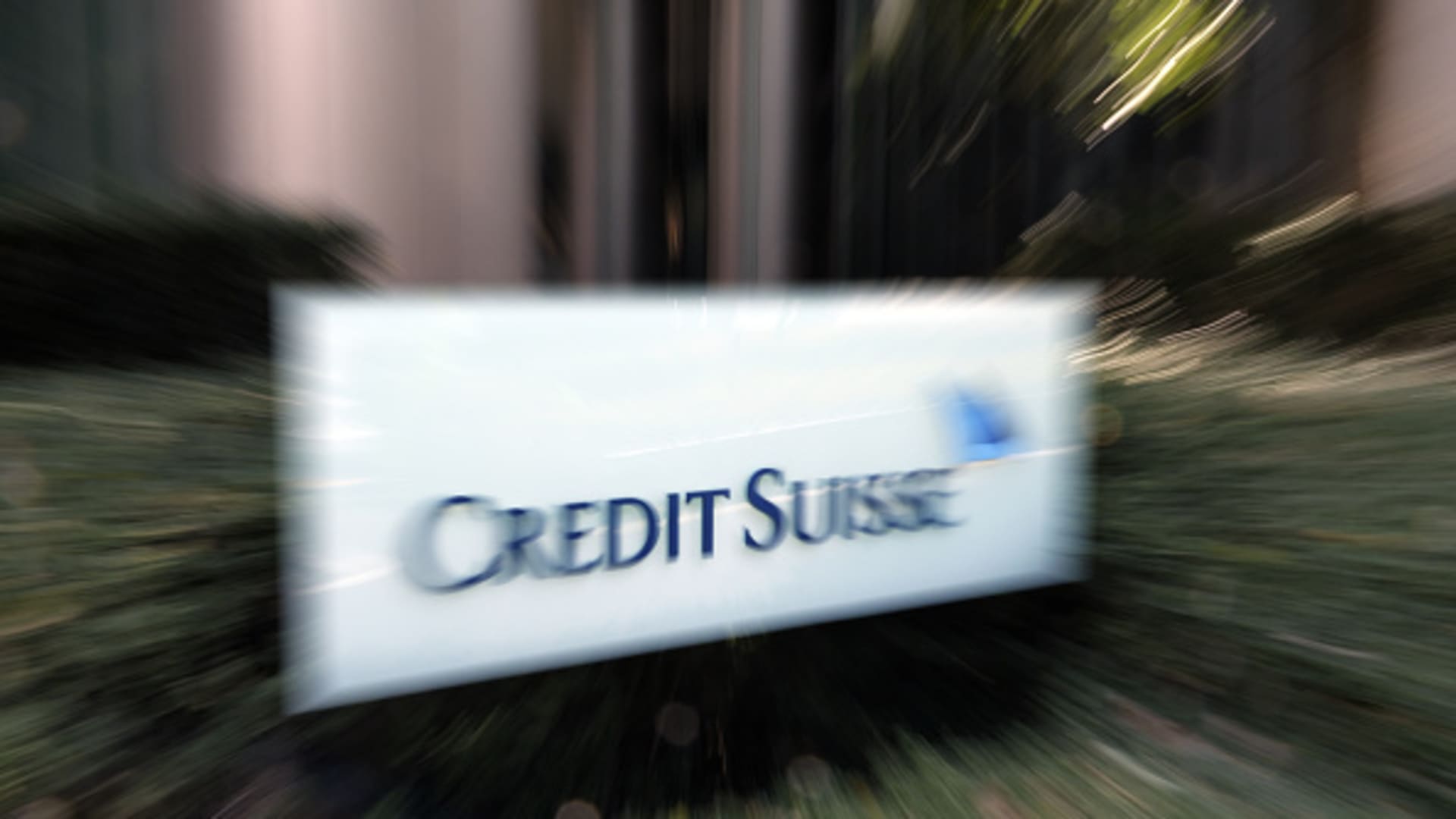Saudi National Bank is nursing major losses in the wake of the forced takeover of Credit Suisse by UBS to for $3.2 billion.
Saudi National Bank — Credit Suisse’s largest shareholder — confirmed to CNBC on Monday that it had been hit with a loss of around 80% on its investment.
The Riyadh-based bank holds a 9.9% stake in Credit Suisse, having invested 1.4 billion Swiss francs ($1.5 billion) in the 167-year-old Swiss lender in November of last year, at 3.82 francs per share.
Under the terms of the rescue deal, UBS is paying Credit Suisse shareholders 0.76 francs per share.
The significant discount comes as regulators try to shore up the global banking system.The scramble for a rescue follows a tumultuous few weeks which saw the collapse of U.S.-based Silicon Valley Bank and shares of First Republic Bank tank as well as major stock price downturns across the banking sector internationally.
Shares of UBS, Switzerland’s largest bank, traded down 10.5% at 9:28 a.m. London time (5:28 a.m. ET), while Europe’s banking sector was around 4% lower. Credit Suisse was down a whopping 62%.
Despite the loss, Saudi National Bank says its broader strategy remains unchanged. Shares of the lender were up 0.58% on Monday at 9:30 a.m. London time.
“As at December 2022, SNB’s investment in Credit Suisse constituted less than 0.5% of SNB’s total Assets, and c. 1.7% of SNB’s investments portfolio,” Saudi National Bank said in a statement.
It said there was “nil impact on profitability” from a “regulatory capital perspective.”
“Changes in the valuation of SNB’s investment in Credit Suisse have no impact on SNB’s growth plans and forward looking 2023 guidance,” it added.
The Qatar Investment Authority, Credit Suisse’s second-largest investor, holds a 6.8% stake in the bank and also suffered a steep loss. QIA did not reply to a request for further details.
Credit Suisse’s demise was a long time coming, with a culmination of years of scandals, multibillion-dollar losses, leadership changes and a strategy that failed to inspire investor confidence. In February, the bank — Switzerland’s second largest — reported its biggest annual loss since the 2008 financial crisis after clients withdrew more than 110 billion francs.
In December 2022, Credit Suisse raised some $4 billion in funding from investors, including major Gulf banks and sovereign wealth funds like Saudi National Bank, the Qatar Investment Authority and the Saudi Olayan Group. Norway’s sovereign wealth fund, Norges Bank Investment Management, is also a major shareholder.
The sharp and sudden downturn that began last week and led to the bank’s emergency sale is partially the fault of Saudi National Bank itself, some argue.
Saudi National Bank Chairman Ammar Al Khudairy on Wednesday was asked by Bloomberg if it would increase its stake in the troubled Swiss lender. His reply was “absolutely not, for many reasons outside the simplest reason, which is regulatory and statutory.”
The comment triggered investor panic and sent Credit Suisse shares down 24% during that session, although the statement wasn’t in fact new; the Saudi bank said in October that it had no plans to expand its holdings beyond the current 9.9%.
“Even though the situation at Credit Suisse was not perfect and investors had a lot of question marks about the future of the bank, SNB didn’t help calm down investors and shot themselves in the foot” with the chairman’s comments, one UAE-based investment banker, who requested not to be named due to professional restrictions, told CNBC.
“As the largest shareholders in the bank, they had the most to lose if the bank goes under, and this is exactly what happened,” the banker said.
The Saudi National Bank chairman did attempt to calm the situation the following day, telling CNBC’s Hadley Gamble in Riyadh that “if you look at how the entire banking sector has dropped, unfortunately, a lot of people were just looking for excuses.”
“It’s panic, a little bit of panic. I believe completely unwarranted, whether it be for Credit Suisse or for the entire market,” Al Khudairy said. His comments ultimately failed to stem the bank’s continued rout.
The messy fallout, which spilled over across the entire banking sector, has ruptured market confidence and stoked fears of another global banking crisis. Swiss Finance Minister Karin Keller-Sutter set out to reassure angry taxpayers during a news conference Sunday, stressing that “this is a commercial solution and not a bailout.”
“SNB’s feeling right now is probably like all shareholders in CS — utter anger that management have let the situation get to this point,” Simon Fentham-Fletcher, chief investment officer at Abu Dhabi-based Freedom Asset Management, told CNBC.
“For years CS lurched from crisis to regulatory fine and changed management as it emerged in a new path. Finally the bank ran out of time,” he said.
He said that shareholders, specifically large ones like Saudi National Bank, will likely now want to reappraise the way they make investments and “where the stake is as large as it was here, will probably want to start embedding people so they properly understand what is happening inside their investments.”
Crude oil at $100 could soon become the new normal, top energy analyst Paul Sankey predicts
Want to play higher oil prices? Analysts back these stocks, giving one over 160% upside
These stocks win big when oil prices gain
“This might see a rise in activist shareholders not just wanting a board seat but real eyes and ears,” he added, noting that the last few weeks of market turmoil will undoubtedly put a significant dent in investor desire for risk.
From a risk perspective, Fentham-Fletcher said, “generally I think that we will see a pullback in all risk appetite as confidence has just taken a severe beating, and this combined with the apparent upending of the capital structure rules will undoubtedly make people pause.”





